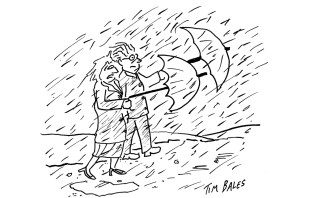This compelling and unnerving collection of stories is Lawrence Osborne’s first, coming in the wake of recent critically acclaimed novels – including The Forgiven, adapted into a film – and earlier works of memoir, essays and travelogue. Born in England, currently residing in Bangkok, Osborne has earned comparisons with Graham Greene for his portraits of flawed white characters in foreign settings, and Patricia Highsmith, thanks to the menacing noir atmosphere. These nine stories, written over the past decade, do not disappoint.

Osborne removes his protagonists – English or American, on the young side of middle age – from their native environments and transplants them into exotic, perilous locations. Divorced from their habitual context, the characters tend to be coming to terms with a new-found solitude; dreams sometimes feature as their lives slide into nightmare.
There is a latent orientalism in this set-up that Osborne fruitfully explores and subverts. His protagonists are often professional observers: in ‘Pig Bones’, there’s Cassidy, an anthropologist; Alice, an entomologist in ‘The Wave’; and Beth, in ‘Blood Eclipse’, a therapist. Women used to scrutinising ‘the other’ suddenly come under scrutiny themselves. In ‘Blood Eclipse’, a local man accosts Beth as he walks past: ‘“I saw you,” he called out, moving backwards without missing a beat, “you and her. I saw you.”’
These sudden, potent pivots – from observer to observed, or wielder of power becoming subject to it – often stem from misunderstandings across a societal gulf or cultural disrespect. In ‘The Boatman’, Clive and Isra, a London banker couple holidaying in Oman, hire a boatman for a day trip to an isolated cove. Isra dances naked on the beach with her back to the sea, admired by Clive, but seen also by passing fishermen – a transgression against local law which endangers them.








Comments
Join the debate for just £1 a month
Be part of the conversation with other Spectator readers by getting your first three months for £3.
UNLOCK ACCESS Just £1 a monthAlready a subscriber? Log in